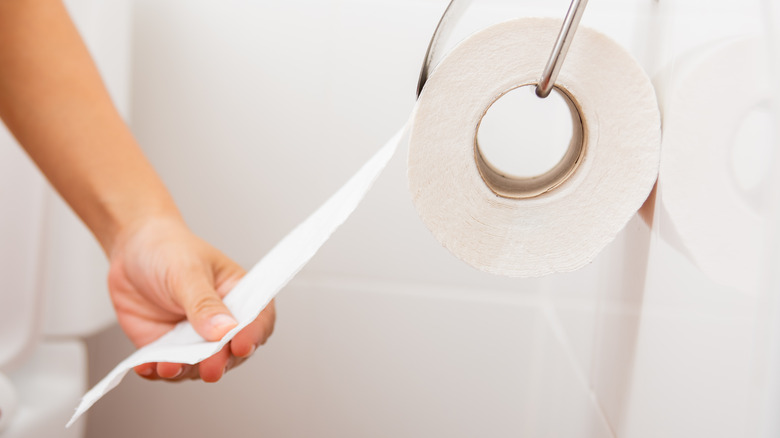What It Means When Your Poop Is White
It is normal to go to the bathroom throughout the course of your life and see different shades, textures, and types of poop. But, with a healthy digestive process, stool generally remains in the light brown-to-dark brown color range — unless, of course, you eat a lot of leafy greens that cause your poop to turn green.
White stool, however, signifies an underlying health condition, especially if it occurs more than once. While there is a possibility that certain types of medications are making it light in color — even Pepto-Bismol (which contains bismuth subsalicylate), antacids, and barium sulfate enemas could turn your poop a pale shade — white stool is not normal and needs to be checked out by a healthcare professional.
In order to understand why white poop occurs, we should probably first look at how the digestive process works. When we eat food, it travels via our mouth and throat down to the esophagus, stomach, small intestine, and large intestine, before finally reaching the anus. Stool gets its color from a yellowish-green substance that our liver produces called "bile," which is stored in the gallbladder. The gallbladder releases bile via ducts into the small intestine during the digestive process to help break down fats in the food we consume, per Healthline. So when your poop is white, this usually means that either your liver or gallbladder is malfunctioning and not doing what it's supposed to be doing.
Medical conditions that can lead to white poop
Conditions of the liver — cirrhosis; liver cancer; fatty liver disease; hepatitis A, B, and C; etc. — can cause your stool to turn pale, according to Health. Health conditions that affect the liver can hamper the organ's ability to produce bile.
Even if the liver is fine and doing what it's supposed to be doing, there could be instances when the gallbladder has obstructions that prevent the bile from reaching the small intestine during the digestive process. One of the common causes of such blocks is gallstones, per Medical News Today. Tumors can close up the ducts from the gallbladder too. With gallstones, there could be other symptoms like fever, chills, pain, bloating, vomiting, nausea, indigestion, and jaundice.
In babies, white poop can indicate biliary atresia — a health condition caused by constricted bile ducts — per Mayo Clinic. It is not uncommon to see yellowish-brown poop in babies that are breastfeeding, but white is generally a cause for concern. Just like for adults, there could be underlying health conditions that are affecting the child's liver, pancreas, or gallbladder.
Your pancreas and its condition can also affect the color of your stool. The pancreas, which is situated behind the lower part of the stomach, also releases enzymes that aid the digestive process. With health conditions like pancreatic cancer and pancreatitis, this function can become hampered, leading to pale-hued stool.
What you should do if you notice white poop
While it might be okay to wait and look for other symptoms if white poop is a one-time thing, it's best to seek medical attention if pale poop occurs more than once.
If you visit a doctor after seeing pale poop, they might ask you questions about when you first noticed the color of your poop and any medications you might be on. They will additionally assess your general health along with underlying conditions and other symptoms. It is also possible that you will be asked to do blood tests, endoscopic retrograde cholangiopancreatography (ERCP), ultrasound, CT scan, or MRI of the liver, according to Medical News Today.
It is best not to ignore textural or color changes in your poop, especially when your stools are red, black, or white. Contrary to what you might think, looking in the toilet bowl after using the bathroom may not be a bad idea after all. You'd be better off knowing what white poop means and how healthy (or not) your digestive system is. Pale stool may indicate serious health conditions, but diseases of the liver, pancreas, or gallbladder can be treated. Just be sure to seek medical advice promptly.



